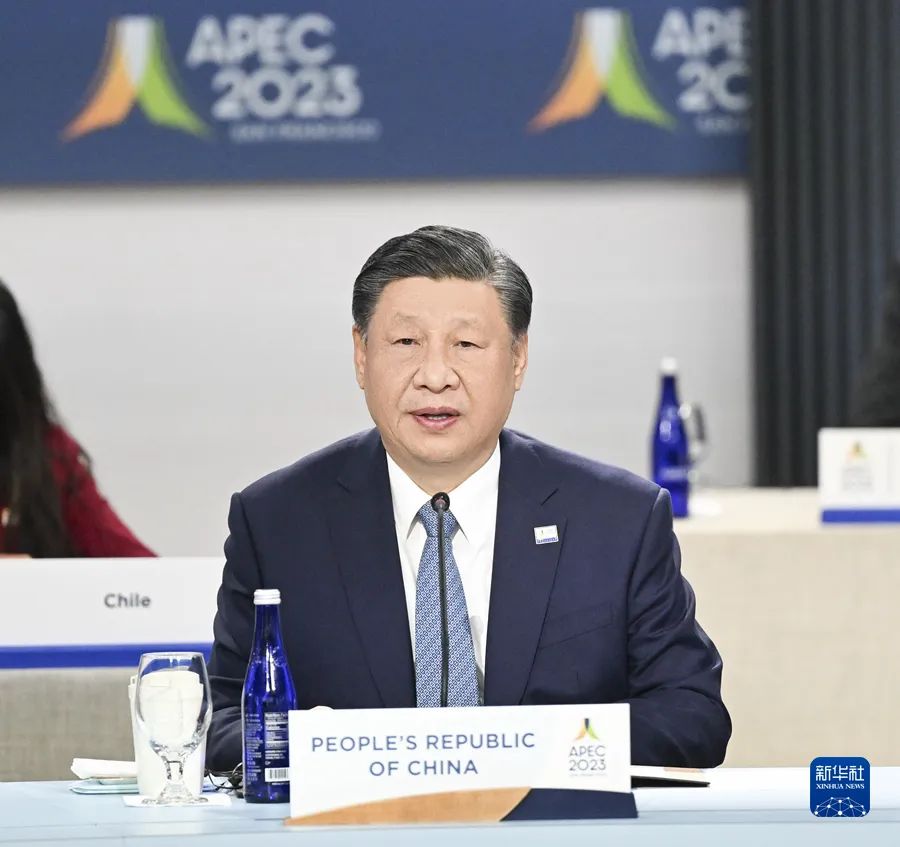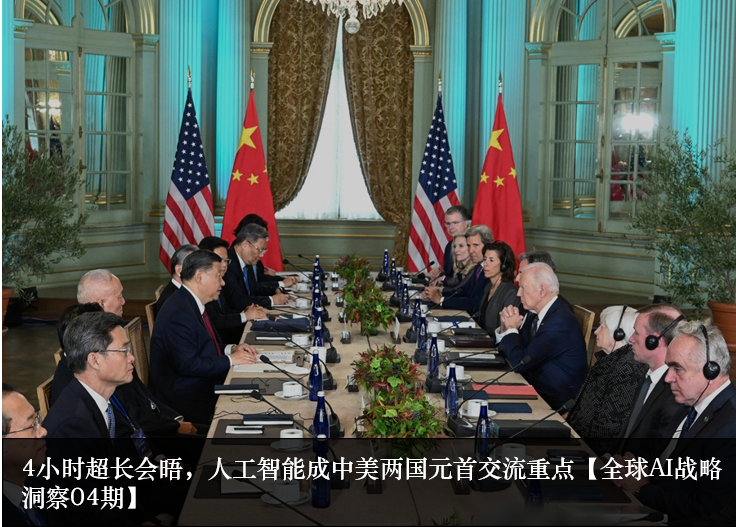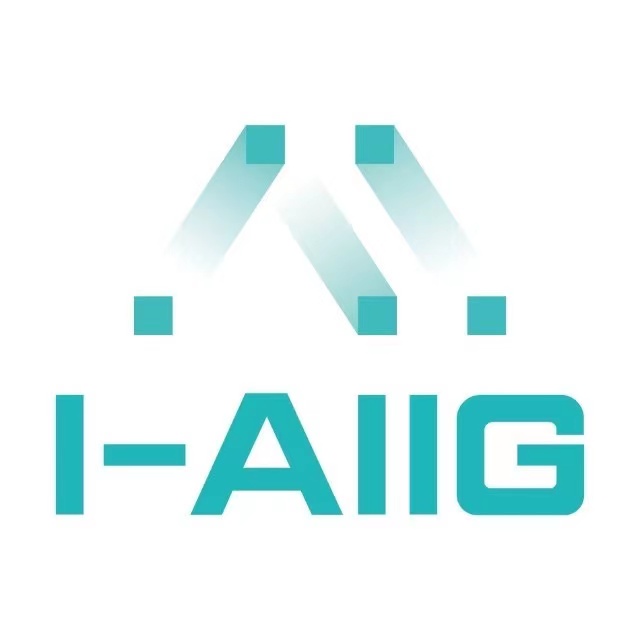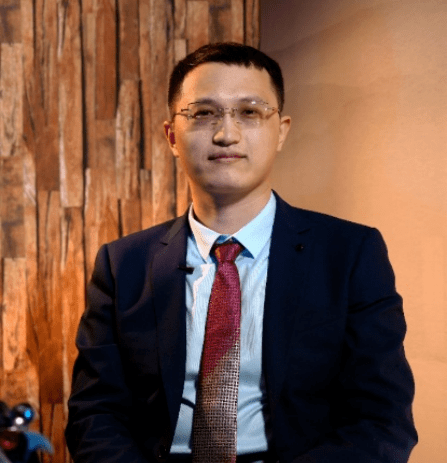【全球AI战略洞察】栏目由清华大学人工智能国际治理研究院推出,旨在通过对当前人工智能领域发生的重要信息进行“标注、提炼、解读”,剖析全球AI治理各国家间不同的战略图景,以此描绘人工智能治理领域的国际格局。
栏目主理人:刘典
复旦大学中国研究院副研究员、清华大学人工智能国际治理研究院战略与宏观研究项目主任

以下是习主席讲话要点整理和原文标注。
【习近平在亚太经合组织第三十次领导人非正式会议上的讲话要点】
要点:
一、习近平在讲话中,针对当前亚太发展和国际局势,提出亚太发展“三问”。
背景:世界百年变局加速演进,世界经济面临多种风险挑战,作为全球增长引擎,亚太肩负更大的时代责任。
亚太发展“三问”:
要把一个什么样的亚太带到本世纪中叶? 如何打造亚太发展的下一个“黄金三十年”? 在这一进程中如何更好发挥亚太经合组织作用?
二、为携手应对全球性挑战,全面落实布特拉加亚愿景,建设开放、活力、强韧、和平的亚太共同体,实现亚太人民和子孙后代的共同繁荣。习近平在讲话中提出四点建议。
创新驱动:习近平提倡以创新为驱动力,促进科技交流合作。他呼吁加速数字化转型,支持新技术应用,以塑造亚太发展的新动能和新优势。
开放导向:在经验教训中,习近平强调开放对亚太地区的兴旺至关重要。他倡导维护自由开放的贸易投资,支持多边贸易体制,加快推进亚太自由贸易区进程。
绿色发展:面对气候变化和自然灾害,习近平强调人与自然的和谐共生,呼吁加速绿色低碳转型,推动降碳、减污、扩绿、增长,实现亚太绿色底色。
普惠共享:习近平强调全球发展事业面临挑战,呼吁各国共同解决全球发展赤字,实现联合国2030年可持续发展议程。他提出构建全球发展共同体,让各国人民共享现代化建设成果。
三、中国发展承诺:习近平表明中国坚持和平发展道路,强调中国的发展目的是让中国人民过上好日子,而不是取代其他国家。他承诺中国将继续支持亚太经合组织开展经济技术合作,共同推动亚太地区迎来下一个“黄金三十年”。
——在亚太经合组织第三十次领导人非正式会议上的讲话
(2023年11月17日,旧金山)
中华人民共和国主席 习近平
尊敬的拜登总统,
各位同事:
很高兴同大家相聚在美丽的旧金山。这是亚太经合组织领导人第三十次聚首,具有特殊重要意义。感谢拜登总统和美国政府为这次会议作出的周到安排。
亚太经合组织建立领导人定期会议机制以来,始终走在全球开放发展的前沿,有力促进了区域贸易和投资自由化便利化、经济技术发展、物资人员流动,创造了举世瞩目的“亚太奇迹”。
当前,世界百年变局加速演进,世界经济面临多种风险挑战,作为全球增长引擎,亚太肩负更大的时代责任。作为亚太地区领导人,我们都要深入思考,要把一个什么样的亚太带到本世纪中叶?如何打造亚太发展的下一个“黄金三十年”?在这一进程中如何更好发挥亚太经合组织作用?
中国古人说:“道之所在,虽千万人吾往矣。”我们应该秉持亚太合作初心,负责任地回应时代呼唤,携手应对全球性挑战,全面落实布特拉加亚愿景,建设开放、活力、强韧、和平的亚太共同体,实现亚太人民和子孙后代的共同繁荣。在此,我愿提出几点建议。
第一,坚持创新驱动。创新是发展的强大动力。我们要顺应科技发展趋势,以更加积极姿态推动科技交流合作,携手打造开放、公平、公正、非歧视的科技发展环境。要加速数字化转型,缩小数字鸿沟,加快落实《亚太经合组织互联网和数字经济路线图》,支持大数据、云计算、人工智能、量子计算等新技术应用,不断塑造亚太发展新动能新优势。
中国坚持创新驱动发展战略,协同推进数字产业化、产业数字化,提出了亚太经合组织数字乡村建设、企业数字身份、利用数字技术促进绿色低碳转型等倡议,更好为亚太发展赋能。
第二,坚持开放导向。亚太发展的经验告诉我们,开放则兴,封闭则衰。我们要维护自由开放的贸易投资,支持并加强以世界贸易组织为核心的多边贸易体制,维护全球产业链供应链稳定畅通,反对将经贸问题政治化、武器化、泛安全化。要坚定不移推进区域经济一体化,加快推进亚太自由贸易区进程,全面落实《亚太经合组织互联互通蓝图》,共享区域开放发展机遇。
近期,中国成功举办第三届“一带一路”国际合作高峰论坛,为促进全球互联互通、构建开放型世界经济注入新动力。中国坚持高水平实施《区域全面经济伙伴关系协定》,主动对接《全面与进步跨太平洋伙伴关系协定》和《数字经济伙伴关系协定》高标准经贸规则,积极推动加入两个协定进程,同各方共绘开放发展新图景。
第三,坚持绿色发展。面对气候变化、自然灾害等日益严峻的挑战,我们要坚持人与自然和谐共生,加快推动发展方式绿色低碳转型,协同推进降碳、减污、扩绿、增长,落实好《生物循环绿色经济曼谷目标》,厚植亚太增长的绿色底色。
中国坚持走生态优先、绿色发展之路,积极稳妥推进碳达峰碳中和,加快发展方式绿色转型。我们提出亚太经合组织绿色农业、可持续城市、能源低碳转型、海洋污染防治等合作倡议,推动共建清洁美丽的亚太。
第四,坚持普惠共享。当前,全球发展事业面临严峻挑战,发展鸿沟加剧。我多次讲,大家一起发展才是真发展。我们要全面落实联合国2030年可持续发展议程,推动发展问题重回国际议程中心位置,深化发展战略对接,共同解决全球发展赤字。欢迎各方积极参与全球发展倡议,深化减贫、粮食安全、工业化、发展筹资等领域合作,构建全球发展共同体,让各国人民共享现代化建设成果。中国将继续支持亚太经合组织开展经济技术合作,共同做大亚太发展蛋糕。
各位同事!
中国正在以中国式现代化全面推进强国建设、民族复兴伟业。中国坚持走和平发展道路,发展的根本目的是让中国人民过上好日子,不是要取代谁。今年是中国改革开放45周年,我们将坚持高质量发展,推进高水平对外开放,以中国式现代化为推动实现世界各国的现代化提供新机遇。我愿同各位同事一道努力,推动亚太合作取得更多丰硕成果,共同打造亚太下一个“黄金三十年”!
谢谢大家。
来源:新华社
【英语原文】
2023 APEC Leaders’ Golden Gate Declaration
Creating a Resilient and Sustainable Future for All
We, the Economic Leaders of APEC, met in San Francisco, California, on November 16-17, 2023. Three decades after the United States hosted the first APEC Economic Leaders’ Meeting on Blake Island near Seattle in 1993, it is clear our steady commitment to APEC’s mission has helped our region become a vanguard of global growth. Here in San Francisco, we emphasized that effective policies require, above all, responsiveness to all our people and economies. This commitment has grounded our vision and practical work in San Francisco and throughout the U.S. host year meetings in Honolulu, Palm Springs, Detroit, and Seattle.
Today we face a different and dynamic set of economic challenges. We must harness technological and economic progress to continue to unleash the enormous potential and tremendous dynamism across our region, spur economic growth, as well as to address all environmental challenges, including climate change. The commitments found within this Golden Gate Declaration build upon the work of previous APEC hosts and move our region towards new ways of bringing resiliency, sustainability, interconnection, innovation and inclusion directly into our priorities and working together to respond to our most pressing economic challenges. Our APEC mission and our practical work remain guided by our commitment, as laid out in the Putrajaya Vision 2040 and the Aotearoa Plan of Action, to an open, dynamic, resilient, and peaceful Asia-Pacific community by 2040, for the prosperity of all our people and future generations. In focusing that vision and work this year on the U.S. theme of “Creating a Resilient and Sustainable Future for All,” we have acknowledged both new challenges that confront us and innovative ways to respond to those challenges.
The U.S. host year builds on APEC’s Bangkok Goals on the Bio-Circular-Green Economy, which established the goal of progressing sustainable and inclusive economic policies while ensuring they also address environmental challenges. We welcome the San Francisco Principles on Integrating Inclusivity and Sustainability into Trade and Investment Policy (Annex) as well as the ministerial-level deliberations of the 2023 sectoral ministerial meetings for Transportation, Trade, Disaster Management, Food Security, Health and the Economy, Energy, Women and the Economy, Small and Medium Enterprises, and Finance, including the Non-Binding Just Energy Transition Principles for APEC Cooperation; Principles for Achieving Food Security Through Sustainable Agri-Food Systems in the APEC Region. We also welcome the updated Disaster Risk Reduction Framework and Action Plan.
We reaffirm our determination to deliver a free, open, fair, non-discriminatory, transparent, inclusive, and predictable trade and investment environment. We also reaffirm the importance of the rules-based multilateral trading system, with the World Trade Organization (WTO) at its core, which continues to catalyze our region’s extraordinary growth. We are committed to necessary reform of the WTO to improve all of its functions, including conducting discussions with a view to having a fully and well-functioning dispute settlement system accessible to all members by 2024. We call upon APEC economies to work towards the timely and effective implementation of WTO agreements and reaffirm our commitment to engage constructively to ensure MC13 is a success and delivers positive outcomes
We underscore our commitment to advance economic integration in the region in a manner that is market-driven, including through the work on the Free Trade Area of the Asia-Pacific agenda. To this end, we will enhance our capacity building and technical cooperation efforts in support of economies’ readiness to participate in high quality and comprehensive regional undertakings. We will further strengthen our engagement with stakeholders, including the APEC Business Advisory Council (ABAC) and increase public-private sector dialogues.
We will continue to work to ensure a level playing field to foster a favorable trade and investment environment. We reiterate our commitment to accelerate work in response to the APEC Services Competitiveness Roadmap (ASCR) Mid-Term Review, with the aim to fully implement the ASCR by 2025. We also reaffirm our commitment to keep markets open and address supply chain disruptions, including by working to support our businesses in building secure, effective, resilient, sustainable, and open supply chains that create a predictable, competitive, and digitally interconnected Asia-Pacific region. By recognizing the unique needs and interests of all stakeholders, we can work towards more inclusive and sustainable policies that ensure our trade and investment equitably benefits all our people and economies. We remain committed to implementing the APEC Connectivity Blueprint (2015-2025) by strengthening physical, institutional and people-to-people connectivity. We will intensify efforts to promote regional, sub-regional and remote area connectivity. In this regard, we reaffirm the importance of quality infrastructure development and investment.
The world continues to confront profound challenges posed by the impacts of climate change. We recognize that more intensive efforts are needed for economies to accelerate their clean, sustainable, just, affordable, and inclusive energy transitions through various pathways, consistent with global net-zero greenhouse gas emissions / carbon neutrality by or around mid-century, while taking into account the latest scientific developments and different domestic circumstances. In doing so, we endeavor to unleash a new era of decent jobs, investment, economic growth, and ensure energy, security, resilience, and access in the region. We recall our commitment to rationalize and phase out inefficient fossil fuel subsidies that encourage wasteful consumption, while recognizing the importance of providing those in need with essential energy services. To reach this goal, we will continue our efforts in an accelerated manner.
We will pursue and encourage efforts to triple renewable energy capacity globally through existing targets and policies as well as demonstrate similar ambition with respect to other zero and low emissions technologies including abatement and removal technologies in line with domestic circumstances by 2030. To spur the transition to and investment in low and zero emissions transportation in the region through various pathways, we will pursue efforts to accelerate the transition towards low and zero emissions vehicles; sustainable aviation fuels; and low and zero emission maritime shipping and port decarbonization.
We commit to fully implement the Food Security Roadmap Towards 2030 as a pathway to make our agri-food systems more resilient, productive, innovative, and sustainable, while recognizing there is “no-one-size-fits-all” approach to agricultural sustainability. We also reaffirm our commitment to work towards the sustainable resource management of agriculture, forestry and marine resources and fisheries, including combatting illegal, unreported and unregulated fishing, and emphasize the relationship between open, undistorted agri-food systems, climate change, and food security and nutrition. We reaffirm the importance of agricultural productivity, international trade, and prevention and reduction of food loss and waste, in achieving food security, and will increase our efforts to ensuring food security and nutrition.
We remain committed to improving the quality of life for all our people, and to creating a resilient and sustainable future for all. To do so we will continue to advance and support gender equality as well as the economic inclusion and empowerment of MSMEs, the workforce, women, youth, and other groups with untapped economic potential, such as Indigenous Peoples as appropriate, persons with disabilities, and those from remote and rural communities.
We emphasize the importance of creating pathways for MSMEs and start-ups to grow, including through opportunities to become more competitive, specialized, and innovative. We will support MSMEs to expand into regional and global markets, including by integrating into global value chains, through collaboration with large enterprises, and through the use of digital tools and technologies. We encourage the development of easy-to-use and cost-effective products and solutions that help MSMEs accelerate their digital transformation. We recognize the importance of access to finance to facilitate growth. We reaffirm the importance of building an enabling environment for MSMEs, as well as supporting the transition of economic actors from the informal to the formal economy.
Here in San Francisco, where APEC first launched the Women and the Economy Forum in 2011, we reaffirmed our commitment to promote economic growth including by fostering the full and equal participation and leadership of women in the economy, including by improving women’s access to capital and assets, markets, skills and capacity building, voices and agency, and innovation and technology. We welcome continued efforts to accelerate full implementation of the La Serena Roadmap for Women and Inclusive Growth to drive inclusive economic development. We commit to care policies and investments in care infrastructure that address the unequal distribution in paid and unpaid care and domestic work, and furthering gender equality in global value chains. We will support women’s meaningful economic participation, particularly in the sustainable economy, as well as women’s and girls’ education, including in STEM fields. We reiterate our commitment to actively encourage initiatives and strategies to prevent and respond to gender-based violence and discrimination against women and girls of diverse backgrounds.
We reaffirm our commitment to create an enabling, inclusive, open, fair and non-discriminatory digital ecosystem for business and consumers. We welcome U.S. efforts to implement the APEC Internet and Digital Economy Roadmap (AIDER), which will foster an inclusive digital economy for all. We encourage all economies to accelerate efforts to implement AIDER, including in the areas of data privacy, cloud computing, telecommunications networks, promoting interoperability, ICT security, and digital trade and e-commerce, emerging technologies, and promoting innovation and adoption of enabling technologies and services. To unlock the full potential of digital technology, equitably share its benefits, and mitigate risks, we will explore a concerted and collaborative policy response, promote international cooperation on digital technology, and welcome a continued international discussion on governance for digital technology. We also commit to bridging the digital divide, including halving the gender digital divide by 2030, taking into account different domestic circumstances. We will strengthen digital infrastructure, facilitate access to information and communication technology goods and services, and ensure that no one is left behind by equipping all people with the necessary skills needed to thrive in the digital economy. We will accelerate digital transformation and cooperate on facilitating the flow of data and strengthening business and consumer trust in digital transactions, including through cooperation on regulatory approaches regarding the internet and digital economy, as well as consumer protection and data privacy in the digital environment. Furthermore, we recognize APEC’s efforts towards a more inclusive APEC Business Travel Card as an enabling technology that support efficient and seamless business travel in the region, and APEC’s efforts to facilitate the recovery of travel and tourism following the pandemic.
Recognizing the detrimental impact of corruption on economic growth and development, we are committed to taking practical actions and a united approach, to jointly fight cross-border corruption and deny safe haven to corruption offenders and their illicit assets. We welcome the work this year in this regard.
Our stakeholders and business communities bring creativity, dynamism, and energy and remain vital partners in our work. We look forward to further strengthening multi-stakeholder engagement, including with ABAC and Pacific Economic Cooperation Council, as well as through events such as the APEC CEO Summit, and Sustainable Future Forum.
This Golden Gate Declaration and our cooperation throughout the U.S. host year exemplify our shared commitment to strengthening APEC’s leadership and standing as the premiere forum for economic cooperation in the Asia-Pacific region. We look forward to the upcoming APEC host years of Peru (2024), the Republic of Korea (2025), and Viet Nam (2027), and we pledge our support to those economies as they advance APEC’s vital work. We extend our thanks to the people and City of San Francisco and State of California for the warm welcome extended to us.
来源:APEC官网
地址:https://www.apec.org/meeting-papers/leadersdeclarations/2023/2023-leaders-declaration

编辑:陶含孜
校审:王祚
关于我们
清华大学人工智能国际治理研究院(Institute for AI International Governance, Tsinghua University,THU I-AIIG)是2020年4月由清华大学成立的校级科研机构。依托清华大学在人工智能与国际治理方面的已有积累和跨学科优势,研究院面向人工智能国际治理重大理论问题及政策需求开展研究,致力于提升清华在该领域的全球学术影响力和政策引领作用,为中国积极参与人工智能国际治理提供智力支撑。
新浪微博:@清华大学人工智能国际治理研究院
微信视频号:THU-AIIG
Bilibili:清华大学AIIG
内容中包含的图片若涉及版权问题,请及时与我们联系删除





评论
沙发等你来抢